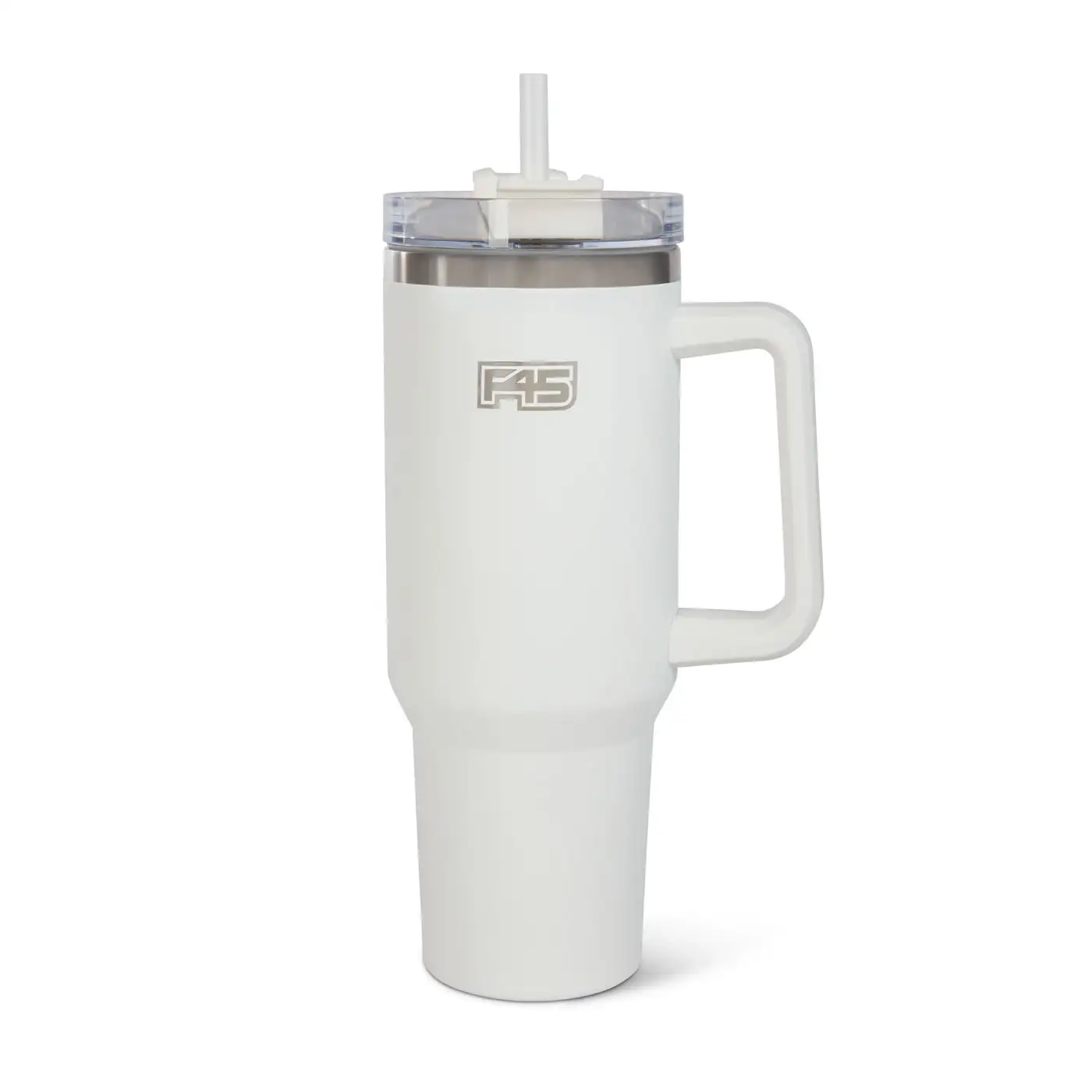August 9 2023 | Ashleigh Kidd, RD, LDN
Hello team! Each week of Challenge I’ll be here to separate fact from fiction when it comes to nutrition. Want your burning questions answered? Head to our IG (@f45Training) every Wednesday to play Fact or Fiction and submit your nutrition questions!

Alright, let’s play!
Fact or Fiction: All processed foods are bad
Fiction!
Processed foods typically get a bad rap, but having some convenience foods on hand can actually make it easier to maintain healthy habits and achieve your nutrition goals. I’m not suggesting you eat heavily processed foods every day, but sometimes processed foods can be a great way to help us balance our meals (like frozen veggies), especially when we’re pressed for time.
Convenience food staples:
- Frozen produce (hello thick & creamy smoothies)
- Salad kits
- Whole wheat pasta
- Canned tuna (easy protein!)
- Nut butter
- Canned beans (look for low sodium options when available)
- String cheese
- Frozen protein waffles (top with PB, chia seeds, and berries for a balanced breakfast on the go)
- Ready to serve rice or quinoa (look for low sodium options when available)
- Chicken tenders (pro tip: add this to your salad kit when you’re in a pinch)

Fact or Fiction: You should save up calories during the day if you know you’re going out to eat later
Fiction!
POV: It’s 12pm, you’re starting to get hungry, but you hesitate because you’re going out for dinner and drinks this evening. It’s easy to think that “saving up” calories is a good idea in anticipation of eating a large meal or going out later in the day. However, doing so will likely leave you feeling out of control at your next meal, eating past fullness, and feeling very uncomfortable.
Instead, eat how you normally would that day so that you can be present and mindful later on.
Eating consistent meals/snacks throughout the day and not skipping meals can help by:
- Providing consistent energy
- Avoiding the 3pm slump
- Balancing blood sugars
- Decreased chance of binge eating or overeating at the end of the day
- Improved mood

Fact or Fiction: For fat loss, it’s best to cut out carbs
Fiction!
If someone or something tells you to cut out any macronutrient (protein, carbs, fat) to reach your goals, this is a major red flag (with the exception of medical reasons)! Carbohydrates are often demonized but in fact they are ESSENTIAL to function optimally. They’re not only our bodies primary and preferred source of energy, but they provide a variety of micronutrients, help to balance blood sugars, aid in performance recovery, and are essential for a balanced plate (learn the benefits here).

Fact or Fiction: Establishing a cheat day will help you reach your goals
Fiction!
Some people find themselves in an “all or nothing” mindset when it comes to their health.
For example, you eat really “clean” Mon-Thurs but then Friday comes and you’re at your friends birthday party and there’s cake. You eat a piece, and you’re full now, but because you’ve restricted this food and you don’t know the next time you’ll allow yourself to have it, you have a little more, and a little more, until you say “well, I messed up my week, I might as well eat as much as I can of this, I’ll just start over on Monday”. Sound familiar?
Staying in this mindset will be a continuous cycle every week if we don’t break it. This is where removing good/bad food labels comes into play (learn more here), and we learn balance. Allowing balance in your diet doesn’t mean nutrition goes out the window. In fact, with time and practice, you’ll learn to create a healthy balance of nutrient dense foods and less nutrient dense foods, without guilt, long term.

Fact or Fiction: A calorie deficit is the only thing that matters when it comes to weight loss
It’s not that simple!
To lose weight we must be in a caloric deficit, there’s no mystery there. However, that’s not the only piece to the puzzle when it comes to building sustainable health habits, which should be the overarching goal. Here’s a few tips on where to start:
– Avoid severe restriction/fad diets (very low calories, cutting out entire food groups, etc.)
This can lead to:
- Decrease in muscle mass
- Weight cycling
- Weight gain in the long term
- Poor relationship with food
- Lower base metabolic rate
- Headaches
- Imbalanced blood sugars
- Nutrient deficiencies
- Irritability and mood swings
– Incorporate mindful eating practices
– Focus on where you can add nutrition into your diet vs what you should take away
– Aim to eat a balanced meal most of the time and avoid skipping meals
– When eating in a calorie deficit, start slow with a daily deficit of around 200-350 calories. Adjustments can be made every few weeks as needed.

Have you ordered your meals for Challenge yet? There’s still time! Check your area here for suppliers here.
For additional nutrition and wellness support, you can always check out F45 Articles for tips on how to improve your nutrition and relationship with food.














